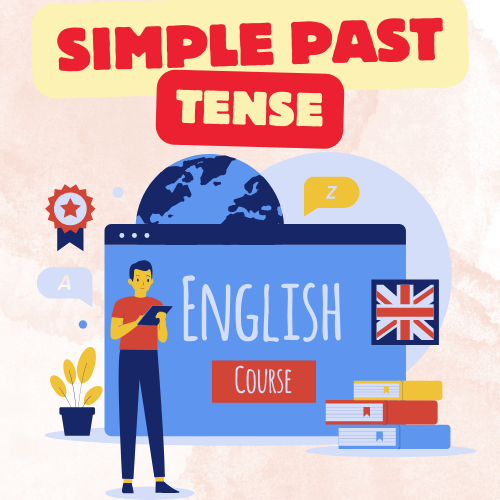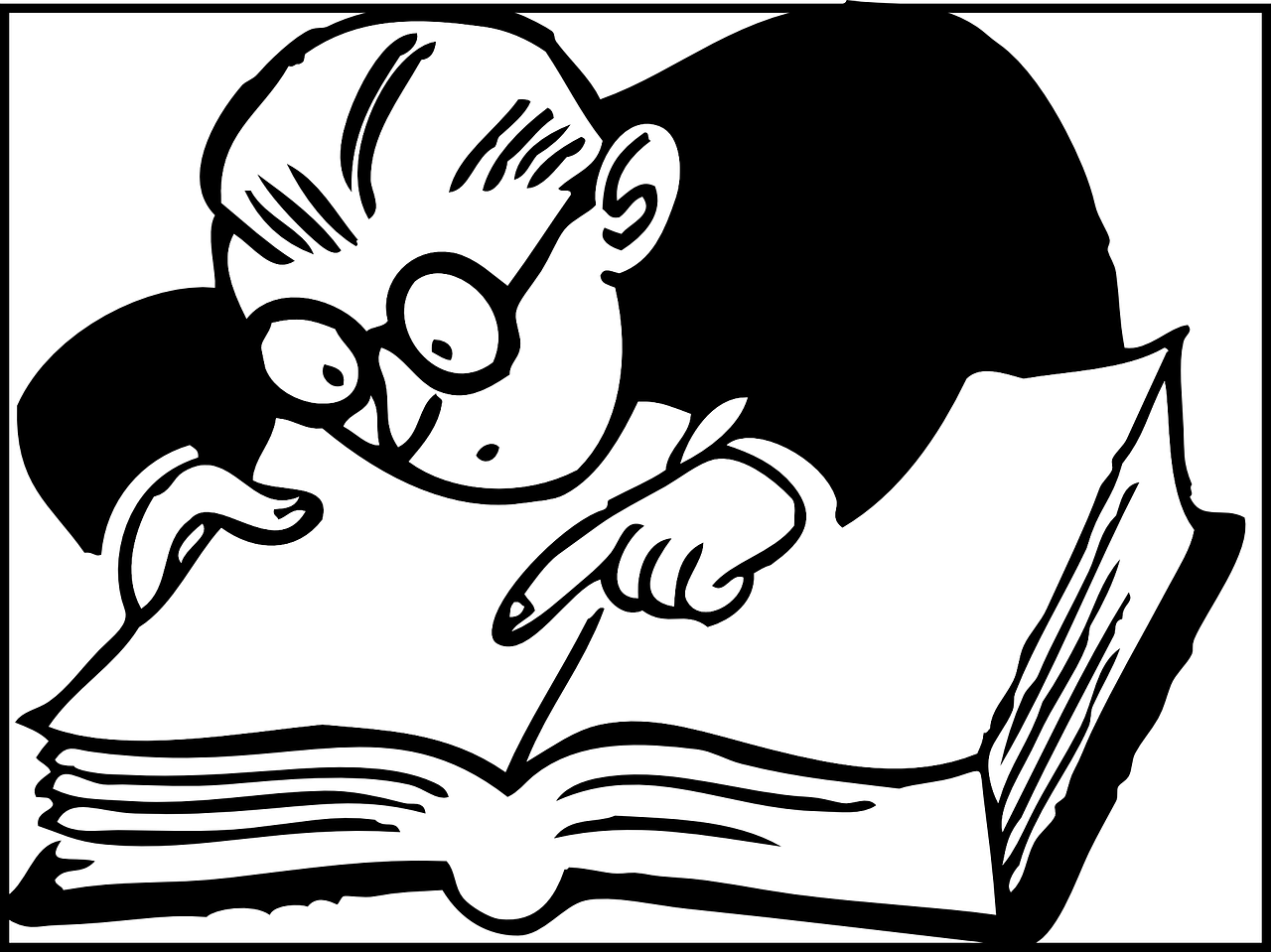

Introduction:
Welcome to our intermediate English learning lesson on the simple past tense! The simple past tense is a crucial verb form used to describe actions that occurred in the past. Understanding how to form and use the simple past tense is essential for effective communication in English. In this lesson, you will learn about regular and irregular verbs in the simple past tense, as well as common situations where this tense is used. Let's dive into the simple past tense to enhance your grammar skills!
Lesson Content:
Explanation of the Simple Past Tense:
The simple past tense is used to describe actions that happened in the past. It indicates that an action was completed at a specific time in the past and is no longer ongoing.
Forming Regular and Irregular Verbs in the Simple Past Tense:
Regular Verbs:
Definition: Regular verbs form their past tense by adding "-ed" to the base form.
Examples: walked, talked, played
Irregular Verbs:
Definition: Irregular verbs do not follow the regular "-ed" pattern in forming the past tense.
Examples: went, ate, saw
Note: Irregular verbs have unique past tense forms, and they must be memorized individually.
Usage of the Simple Past Tense:
The simple past tense is used in various situations to describe actions or events that occurred in the past. Common uses include narrating past events, describing actions completed in the past, or discussing past habits.
Examples of Sentences Using the Simple Past Tense:
"I visited Paris last summer."
"She cooked dinner yesterday."
"They played soccer yesterday."
Note: In each of these examples, the simple past tense is used to indicate actions that occurred at a specific point in the past.
By mastering the simple past tense and understanding when to use it, you can effectively communicate about past events and experiences in English.
Introduction: Welcome to our intermediate English learning lesson on the simple past tense! The simple past tense is a crucial verb form used to describe actions that occurred in the past.
Understanding how to form and use the simple past tense is essential for effective communication in English.
In this lesson, you will learn about regular and irregular verbs in the simple past tense, as well as common situations where this tense is used.
Let's dive into the simple past tense to enhance your grammar skills! Lesson Content: Explanation of the Simple Past Tense: The simple past tense is used to describe actions that happened in the past.
It indicates that an action was completed at a specific time in the past and is no longer ongoing.
Forming Regular and Irregular Verbs in the Simple Past Tense: Regular Verbs: Definition: Regular verbs form their past tense by adding "-ed" to the base form.
Examples: walked, talked, played Irregular Verbs: Definition: Irregular verbs do not follow the regular "-ed" pattern in forming the past tense.
Examples: went, ate, saw Note: Irregular verbs have unique past tense forms, and they must be memorized individually.
Usage of the Simple Past Tense: The simple past tense is used in various situations to describe actions or events that occurred in the past.
Common uses include narrating past events, describing actions completed in the past, or discussing past habits.
Examples of Sentences Using the Simple Past Tense: "I visited Paris last summer." "She cooked dinner yesterday." "They played soccer yesterday." Note: In each of these examples, the simple past tense is used to indicate actions that occurred at a specific point in the past.
By mastering the simple past tense and understanding when to use it, you can effectively communicate about past events and experiences in English.
|
|

Simple past tenseSimple past tense |

He walked to school yesterday.He walked to school yesterday. |

regular verbsregular verbs |

She played tennis last weekend.She played tennis last weekend. |

irregular verbsirregular verbs |

They ate pizza for dinner last night.They ate pizza for dinner last night. |

walkedwalked |

He walked to school yesterday.He walked to school yesterday. |

talkedtalked |

She talked to her friend on the phone.She talked to her friend on the phone. |

playedplayed |

They played soccer in the park.They played soccer in the park. |

visitedvisited |

I visited my grandparents last summer.I visited my grandparents last summer. |

cookedcooked |

She cooked dinner yesterday.She cooked dinner yesterday. |

playedplayed |

They played board games last night.They played board games last night. |

watchedwatched |

He watched a movie with his family.He watched a movie with his family. |

listenedlistened |

She listened to music while studying.She listened to music while studying. |

workedworked |

He worked late at the office.He worked late at the office. |

studiedstudied |

She studied for her exam all night.She studied for her exam all night. |

cleanedcleaned |

They cleaned the house on Saturday.They cleaned the house on Saturday. |

danceddanced |

He danced at the party last weekend.He danced at the party last weekend. |

laughedlaughed |

She laughed at the funny joke.She laughed at the funny joke. |

criedcried |

He cried during the sad movie.He cried during the sad movie. |

finishedfinished |

She finished her homework before bedtime.She finished her homework before bedtime. |

wentwent |

They went to the beach last Sunday.They went to the beach last Sunday. |

ateate |

He ate sushi for lunch yesterday.He ate sushi for lunch yesterday. |

sawsaw |

She saw a shooting star last night.She saw a shooting star last night. |

drankdrank |

They drank tea at the café.They drank tea at the café. |

drovedrove |

He drove to the mountains for vacation.He drove to the mountains for vacation. |

boughtbought |

She bought a new dress at the mall.She bought a new dress at the mall. |

caughtcaught |

He caught the ball during the game.He caught the ball during the game. |

foundfound |

She found a treasure in the garden.She found a treasure in the garden. |

flewflew |

They flew to Paris for vacation.They flew to Paris for vacation. |

gavegave |

He gave her flowers for her birthday.He gave her flowers for her birthday. |

hadhad |

She had a party last weekend.She had a party last weekend. |

heldheld |

They held hands while walking.They held hands while walking. |

keptkept |

He kept the secret to himself.He kept the secret to himself. |

leftleft |

She left her keys at home.She left her keys at home. |

lostlost |

They lost the game by one point.They lost the game by one point. |

mademade |

He made a delicious cake for dessert.He made a delicious cake for dessert. |

metmet |

She met her friend at the café.She met her friend at the café. |

paidpaid |

They paid for their meal at the restaurant.They paid for their meal at the restaurant. |

readread |

He read a book before bedtime.He read a book before bedtime. |

roderode |

She rode her bike to work.She rode her bike to work. |

saidsaid |

He said goodbye to his friends.He said goodbye to his friends. |

sangsang |

She sang her favorite song.She sang her favorite song. |

satsat |

They sat on the bench in the park.They sat on the bench in the park. |

sleptslept |

He slept late on Saturday.He slept late on Saturday. |

spokespoke |

She spoke to the manager about the issue.She spoke to the manager about the issue. |

spentspent |

They spent the weekend at the beach.They spent the weekend at the beach. |

stoodstood |

He stood in line for tickets.He stood in line for tickets. |

swamswam |

She swam in the pool for hours.She swam in the pool for hours. |

tooktook |

He took a photograph of the sunset.He took a photograph of the sunset. |

taughttaught |

She taught her dog new tricks.She taught her dog new tricks. |

thoughtthought |

He thought about his future.He thought about his future. |

understoodunderstood |

She understood the instructions clearly.She understood the instructions clearly. |

wrotewrote |

He wrote a letter to his pen pal.He wrote a letter to his pen pal. |
Congratulations! You have now learned about the simple past tense and how to form and use it with regular and irregular verbs.
Practice using the simple past tense in various contexts to strengthen your language skills and improve your ability to communicate about past events in English.